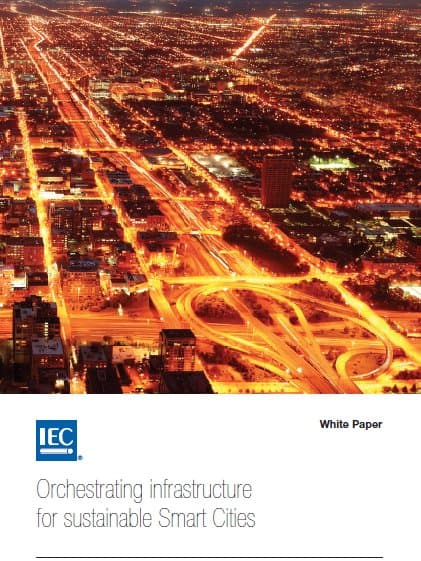By 2050, it is projected that 67% of the global population will live in cities. Smart cities are necessary to reduce emissions and to handle this rapid urban growth. However cities, as we know them, are faced with a complex challenge – the traditional processes of planning, procuring and financing are not adequate for the needs of smart cities. Their development requires the right environment for smart solutions to be effectively adopted and used.
Electricity is core in any urban infrastructure system and the key enabler of cities development, so IEC has a specific role to play in the development of smart city standards. Delivering the full value of standards to accelerate the development of smart cities and lower its costs also clearly needs a strong collaboration of all city stakeholders.
This White Paper explains what it needs to move cities to greater smartness; the what, who and how of smart city development. It calls for a wide collaboration between many stakeholders, including other international standardization bodies to ultimately lead to integrated, cost-efficient, and sustainable solutions.
This White Paper was prepared by the IEC Market Strategy Board (MSB) project team on smart cities in cooperation with Centre for European Policy Studies (CEPS).



